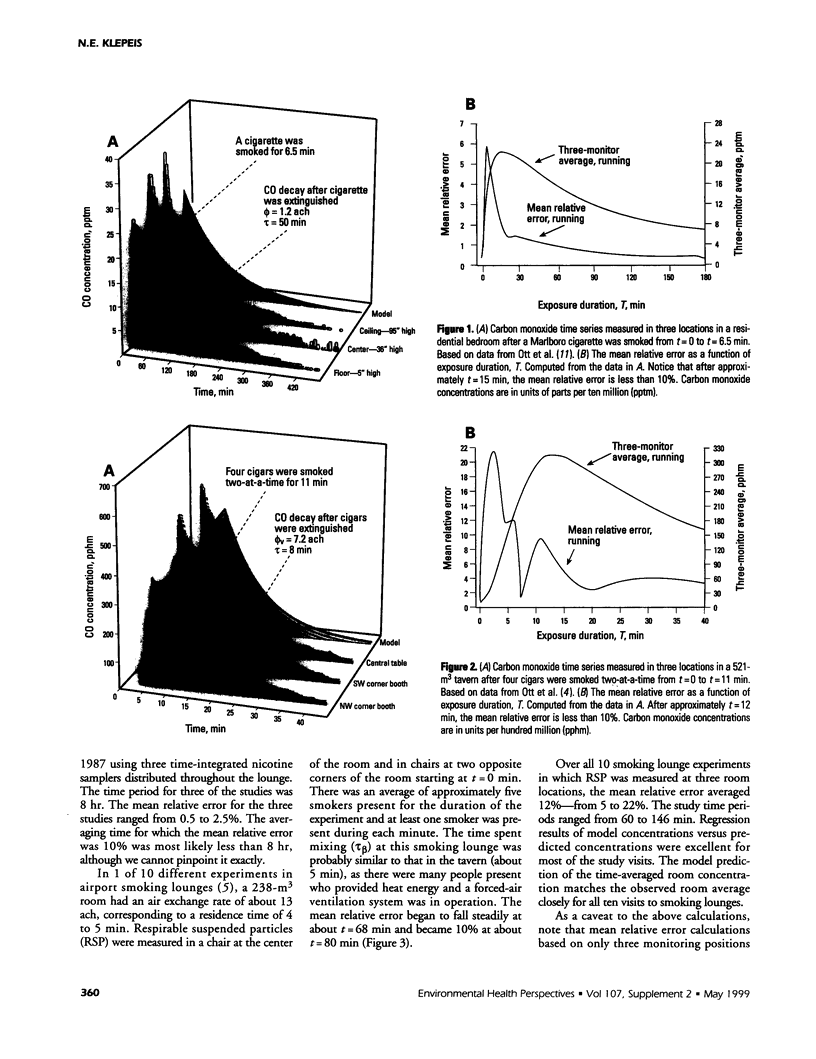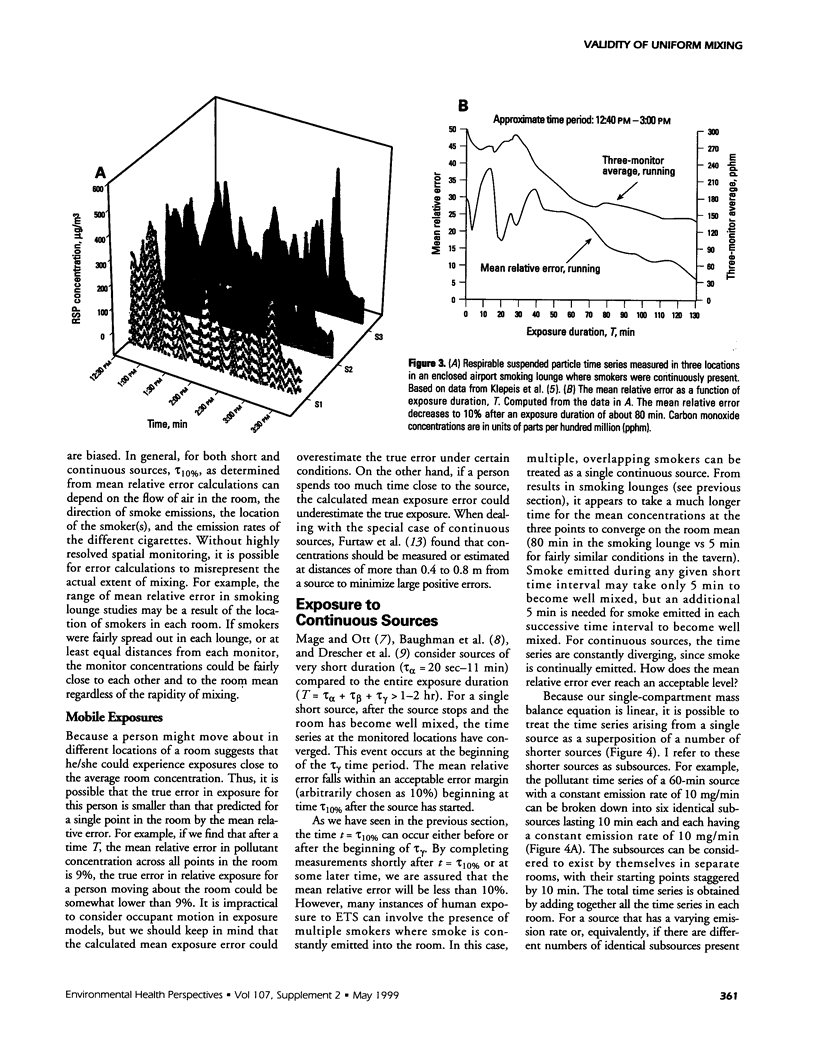Abstract
When using the mass balance equation to model indoor air quality, the primary assumption is that of uniform mixing. Different points in a single compartment are assumed to have the same instantaneous pollutant concentrations as all other points. Although such an assumption may be unrealistic, under certain conditions predictions (or measurements) of exposures at single points in a room are still within acceptable limits of error (e.g., 10%). In this article, three studies of the mixing of environmental tobacco smoke (ETS) pollutants are reviewed, and data from several other ETS field studies are presented. Under typical conditions for both short sources (e.g., 10 min) and the continuous sources of ETS in smoking lounges, I find that average exposure concentrations for a single point in a room represent the average exposure across all points in the room within 10% for averaging times ranging from 12 to 80 min. I present a method for determining theoretical estimates of acceptable averaging times for a continuous point source.
Full text
PDF






Images in this article
Selected References
These references are in PubMed. This may not be the complete list of references from this article.
- Furtaw E. J., Jr, Pandian M. D., Nelson D. R., Behar J. V. Modeling indoor air concentrations near emission sources in imperfectly mixed rooms. J Air Waste Manag Assoc. 1996 Sep;46(9):861–868. doi: 10.1080/10473289.1996.10467522. [DOI] [PubMed] [Google Scholar]
- Klepeis N. E. An introduction to the indirect exposure assessment approach: modeling human exposure using microenvironmental measurements and the recent National Human Activity Pattern Survey. Environ Health Perspect. 1999 May;107 (Suppl 2):365–374. doi: 10.1289/ehp.99107s2365. [DOI] [PMC free article] [PubMed] [Google Scholar]
- Ott W. R. Mathematical models for predicting indoor air quality from smoking activity. Environ Health Perspect. 1999 May;107 (Suppl 2):375–381. doi: 10.1289/ehp.99107s2375. [DOI] [PMC free article] [PubMed] [Google Scholar]
- Wilson A. L., Colome S. D., Tian Y., Becker E. W., Baker P. E., Behrens D. W., Billick I. H., Garrison C. A. California residential air exchange rates and residence volumes. J Expo Anal Environ Epidemiol. 1996 Jul-Sep;6(3):311–326. [PubMed] [Google Scholar]






